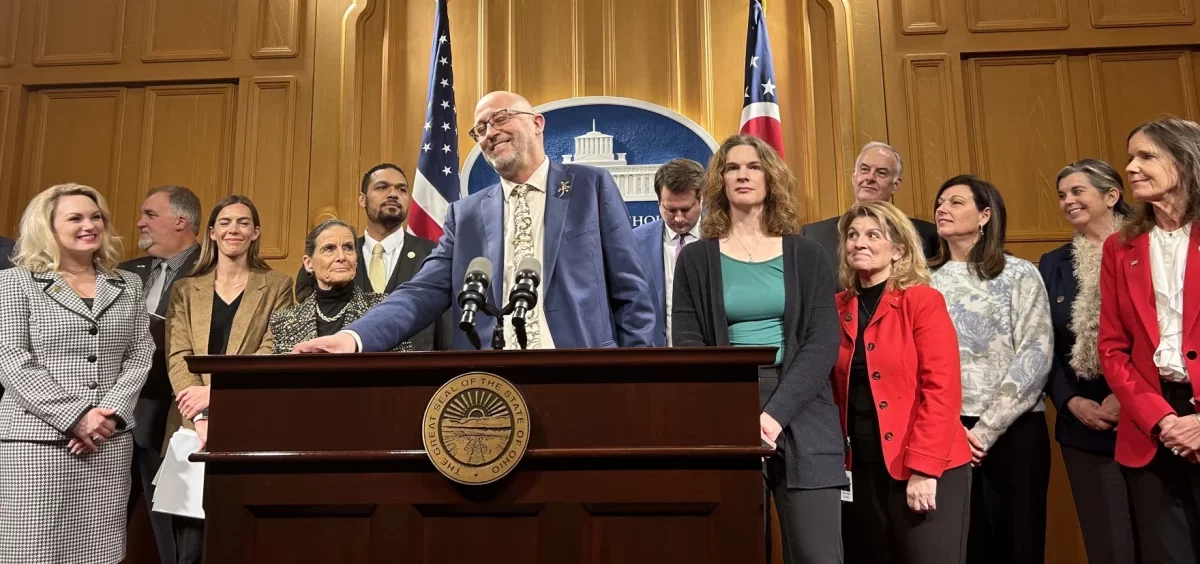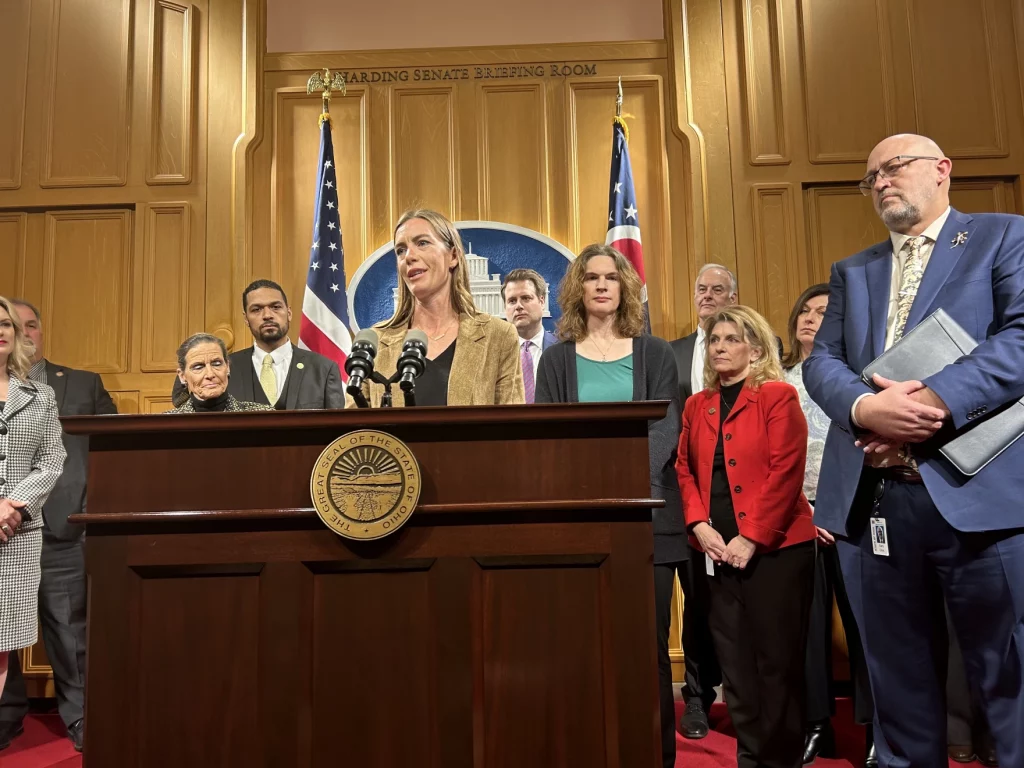News

How the Ohio House veto override might affect DeWine’s proposed rules on trans kids’ health care
By: Jo Ingles | Statehouse News Bureau
Posted on:
COLUMBUS, Ohio (Statehouse News Bureau) — The Ohio House has overridden Gov. Mike DeWine’s veto of a controversial bill affecting trans kids on a party line vote. And the Senate is likely to follow suit by the end of this month.
But DeWine said regardless of what the legislature does on House Bill 68, which bans gender transition treatments for minors and prohibits trans kids from playing girls’ sports, he’ll continue to work with his agencies to write rules. However at this point, Ohio lawmakers who supported the bill are not ready to codify DeWine’s rules into law.
When he announced the veto, DeWine also signed an executive order banning gender reassignment surgeries on minors in Ohio — which children’s hospitals have said is not happening.
On Thursday he signed another executive order prohibiting a procedure or surgery that’s prohibited by rule or law from being performed in an office setting, in a hospital or ambulatory surgical facility. DeWine had said he wants administrative rules to prevent what he calls fly-by-night “pop-up clinics” that don’t provide comprehensive treatment for trans patients.

“These were some holes that were clear to me that needed to be filled. One, we need to have data. We need to have information. We have data on virtually everything else in the medical field. We don’t have data on this,” DeWine said.
One of the criticisms of DeWine’s administrative rules and executive orders is that a future governor could do away with them. When asked about that, DeWine offered a solution.
“Look, if the legislature wants to take what I’ve just done here by executive order and wants to put that in permanent law, that’s fine with me,” DeWine told reporters last week.
There’s no indication lawmakers will do that
Rep. Gary Click (R-Vickery) sponsored HB 68. He said he likes some of DeWine’s ideas in principle. Click said some data collection was initially proposed for part of his bill but that was removed through the legislative process. When asked if he was considering sponsoring legislation that would codify DeWine’s executive orders or administrative rules, Click didn’t make any promises.
“I am willing to work with him and have conversations with him. I am willing to provide input and also connect him with other people who are very knowledgeable in that space.” Click said. “Will I work with the governor? Yes. Am I going to rubber-stamp everything? No, he didn’t rubber-stamp the things that I did.”
“But I know he likes me because I’m the only representative I know that got a 30-minute press conference on my birthday,” Click said, referencing DeWine’s announcement of his veto on Dec. 29.
The veto took many lawmakers by surprise, especially since the Republican-backed bill passed with veto-proof majorities in both chambers.
Freshman Rep. Josh Williams (R-Sylvania) said it was important to override the veto because “the governor tried to pull legislative authority from this legislative body.”
“We are the deliberative body. We are the ones who have been elected to make the laws here in the state of Ohio and we have spent a long time and effort into drafting the legislation that was passed,” Williams said.
That was a sentiment echoed by Click when explaining why the legislature didn’t start moving to codify DeWine’s proposed rules instead of passing this bill.
“I think it’s disingenuous to say ‘I’m going to come in after 10 days and I’m going to rewrite the whole thing and you come sign my version of it’ when I’ve been working on this for almost three years,” Click said.

The next step in the veto override process
Now that the House has overridden the veto, it’s up to the Senate to take action. Only seven of the 33 Senators are Democrats, and Senate President Matt Huffman (R-Lima) has said the votes to override are there. That’s expected to happen at the next Senate session on Jan. 24, if not sooner.

